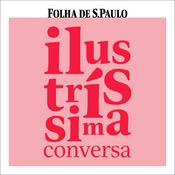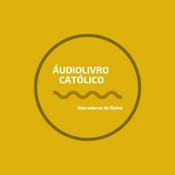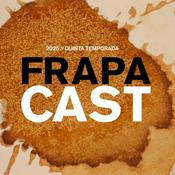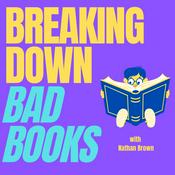478 episódios
Kristin Roebuck, "Japan Reborn: Race and Eugenics from Empire to Cold War" (Columbia UP, 2025)
10/2/2026 | 58minIn her book Japan Reborn: Race and Eugenics from Empire to Cold War (Columbia UP, 2025), historian Kristin Roebuck grapples with the question: Why did Japan embrace “mixed blood” as an authoritarian empire yet turn to xenophobic racial nationalism as a Cold War democracy? Through in-depth and rigorous historical archival research, Roebuck traces the fraught history of sex, reproduction, race and empire building in Japan from the 1930s to 1950s. Through her scholarship, she crucially demonstrates how discourses on sex, mixed-race children, and adoption revolved around control of women and their bodies to strengthen nationalism and imperialism. This monograph is an important read for listeners who are interested in the topics of race, gender and empire and scholars in Asian Studies, History, and Gender Studies.
Learn more about your ad choices. Visit megaphone.fm/adchoices
Support our show by becoming a premium member! https://newbooksnetwork.supportingcast.fm/japanese-studies- Samurai (British Museum Press 2026) is a richly illustrated volume co-authored by exhibition curator Rosina Buckland (British Museum) and Oleg Benesch (York) to accompany the special exhibition "Samurai" at the British Museum 3 Feb - 4 May 2026. More than a catalogue, Samurai uses the exhibit to explore the overlapping and diverging myths and histories of the samurai from medieval warriors to bureaucrats to global pop culture phenomena. As the exhibition website observes, "The samurai is an iconic figure, evoking images of formidable fighters possessing ideals of courage, honour and self-sacrifice. Yet much of what we think we know about samurai is invented tradition." Samurai is the kind of book that epitomizes how rigorous academic work can be transformed into effective public communication.
The museum encourages listeners, readers, and guests of the exhibit to explore more of the collection here.
Learn more about your ad choices. Visit megaphone.fm/adchoices
Support our show by becoming a premium member! https://newbooksnetwork.supportingcast.fm/japanese-studies Alex Wellerstein, "The Most Awful Responsibility: Truman and the Secret Struggle for Control of the Atomic Age" (Harper, 2025)
21/1/2026 | 1h 4minDropping the atomic bombs on Japan during World War II was, arguably, the most controversial decision of the 20th century. The responsibility for that “decision” has logically fallen on US President Harry S. Truman. But in The Most Awful Responsibility: Truman and the Secret Struggle for Control of the Atomic Age (Harper, 2025), Alex Wellerstein argues that Truman's actual decision wasn’t what everyone thinks it was.
The conventional narrative is that American leaders had a choice: Invade Japan, which would have cost millions of Allied and Japanese lives, or instead, use the atom bomb in the hope of convincing Japan to surrender. Truman, the story goes, carefully weighed the pros and cons before deciding that the atomic bomb would be used against Japanese cities, as the lesser of two evils.
But nuclear historian Alex Wellerstein argues that is not what happened.
Not only did Truman not take part in the decision to use the bomb, but the one major decision that he did make was a very different one — one that he himself did not fully understand until after the atomic bomb was used. The weight of that decision, and that misunderstanding, became the major reason that atomic bombs have not been used again since World War II.
Based on a close reading of the historical record, The Most Awful Responsibility shows that, despite his reputation as an ardent defender of the atomic bomb, Truman:
Wanted to avoid the “murder” and “slaughter” of innocent civilians
Believed that the atomic bomb should never be used again
Hoped that nuclear weapons would be outlawed in his lifetime
Wellerstein makes a startling case that Truman was possibly the most anti-nuclear American president of the twentieth century, but his ambitions were strongly constrained by the domestic and international politics of the postwar world and the early Cold War. This book is a must-read for all who want to truly understand not only why the bomb was dropped on Japan but also why it has not been used since.
Dr. Andrew O. Pace is a historian of the US in the world who specializes in the fog of war. He is currently a DPAA Research Partner Fellow at the University of Southern Mississippi and a co-host of the Diplomatic History Channel on the New Books Network. He is also working on his first book which examines why the United States pursued victory at practically all costs during World War II. He can be reached at [email protected] or here. Andrew is not an employee of DPAA, he supports DPAA through a partnership. The views presented are those of the author and do not necessarily represent the views of DPAA, DoD or its components.
Learn more about your ad choices. Visit megaphone.fm/adchoices
Support our show by becoming a premium member! https://newbooksnetwork.supportingcast.fm/japanese-studiesAnne Sokolsky ed., "Bold Breaks: Japanese Women and Literary Narratives of Divorce" (U Hawaii Press, 2025)
20/1/2026 | 1h 3minThe various words for “divorce” in Japanese—rien, enkiri, fūfu wakare, rikon—reflect how the socially constructed institutions of marriage and family, along with their dissolutions, have been understood in Japanese history and jurisprudence. Employing a broad definition of divorce as the end of a romantic union sanctioned by law, social custom, or mutual agreement, Bold Breaks: Japanese Women and Literary Narratives of Divorce explores the shifting attitudes toward divorce in literature by women from the Heian (794–1185) to Heisei (1989–2019) periods.
The collection features writing by renowned authors Tamura Toshiko (1884–1945), Uno Chiyo (1897–1996), and Tsushima Yūko (1947–2016), who used divorce as a literary device to enable their female protagonists to take bold steps toward new lives. A coda explores more contemporary views on marriage, divorce, and romantic love in the work of novelists Itoyama Akiko (1966–) and Kawakami Mieko (1976–) and poet Saihate Tahi (1986–). A wide-ranging introduction provides an overview of the historical, legal, and literary significance of divorce in Japan. The translated texts, appearing in English for the first time, are accompanied by essays introducing the authors and offering brief analyses.
Bold Breaks will appeal to students and scholars of Japanese literature and culture, particularly those interested in gender issues and family social practices, and will enrich the growing conversation on marriage and divorce across cultures and eras.
Learn more about your ad choices. Visit megaphone.fm/adchoices
Support our show by becoming a premium member! https://newbooksnetwork.supportingcast.fm/japanese-studiesInes Prodöhl, "Globalizing the Soybean: Fat, Feed, and Sometimes Food, c. 1900–1950" (Routledge, 2023)
18/1/2026 | 51minInes Prodöhl’s Globalizing the Soybean: Fat, Feed, and Sometimes Food, c. 1900-1950 (Routledge, 2023) is a history of how, why, and where the soybean became a critical ingredient in industry and agriculture in the first half of the twentieth century. Focusing on Japanese-dominated Manchuria, Germany, and the United States, Prodöhl shows that the soybean was a serendipitous solution to numerous and varied crises from the beginning of the century into the post-WWII decades. This story of imperialism, globalization, and technology begins in northeast China, the world’s soy cultivation center until the 1940s. It takes us to Germany, the number one importer of soybeans in the interwar period, and illuminates the various ways in which soy was integrated into the economy especially after the end of WWI as both an invaluable oilseed for industry and a source of protein-rich fodder for agriculture. Finally, Prodöhl explores how the United States first adopted the soybean mostly as a solution to overtaxed soils. Mixing economic, ecological, political, and technological/scientific history with a keen sense of the materiality of soy as a global product, Globalizing the Soybean is an accessible and enlightening book that will appeal to multiple audiences.
This book is available open access here.
This episode was recorded in person in the studios of Media City Bergen with technical assistance from Frode Ims.
Nathan Hopson is an associate professor of Japanese language and history in the University of Bergen's Department of Foreign Languages.
Learn more about your ad choices. Visit megaphone.fm/adchoices
Support our show by becoming a premium member! https://newbooksnetwork.supportingcast.fm/japanese-studies
Mais podcasts de Arte
Podcasts em tendência em Arte
Sobre New Books in Japanese Studies
This podcast is a channel on the New Books Network. The New Books Network is an academic audio library dedicated to public education. In each episode you will hear scholars discuss their recently published research with another expert in their field.
Discover our 150+ channels and browse our 28,000+ episodes on our website: newbooksnetwork.com
Subscribe to our free weekly Substack newsletter to get informative, engaging content straight to your inbox: https://newbooksnetwork.substack.com/
Follow us on Instagram and Bluesky to learn about more our latest interviews: @newbooksnetwork
Support our show by becoming a premium member! https://newbooksnetwork.supportingcast.fm/japanese-studies
Site de podcastOuça New Books in Japanese Studies, Vem escutar audiobooks e muitos outros podcasts de todo o mundo com o aplicativo o radio.net
Obtenha o aplicativo gratuito radio.net
- Guardar rádios e podcasts favoritos
- Transmissão via Wi-Fi ou Bluetooth
- Carplay & Android Audo compatìvel
- E ainda mais funções
Obtenha o aplicativo gratuito radio.net
- Guardar rádios e podcasts favoritos
- Transmissão via Wi-Fi ou Bluetooth
- Carplay & Android Audo compatìvel
- E ainda mais funções

New Books in Japanese Studies
Leia o código,
baixe o aplicativo,
ouça.
baixe o aplicativo,
ouça.




































